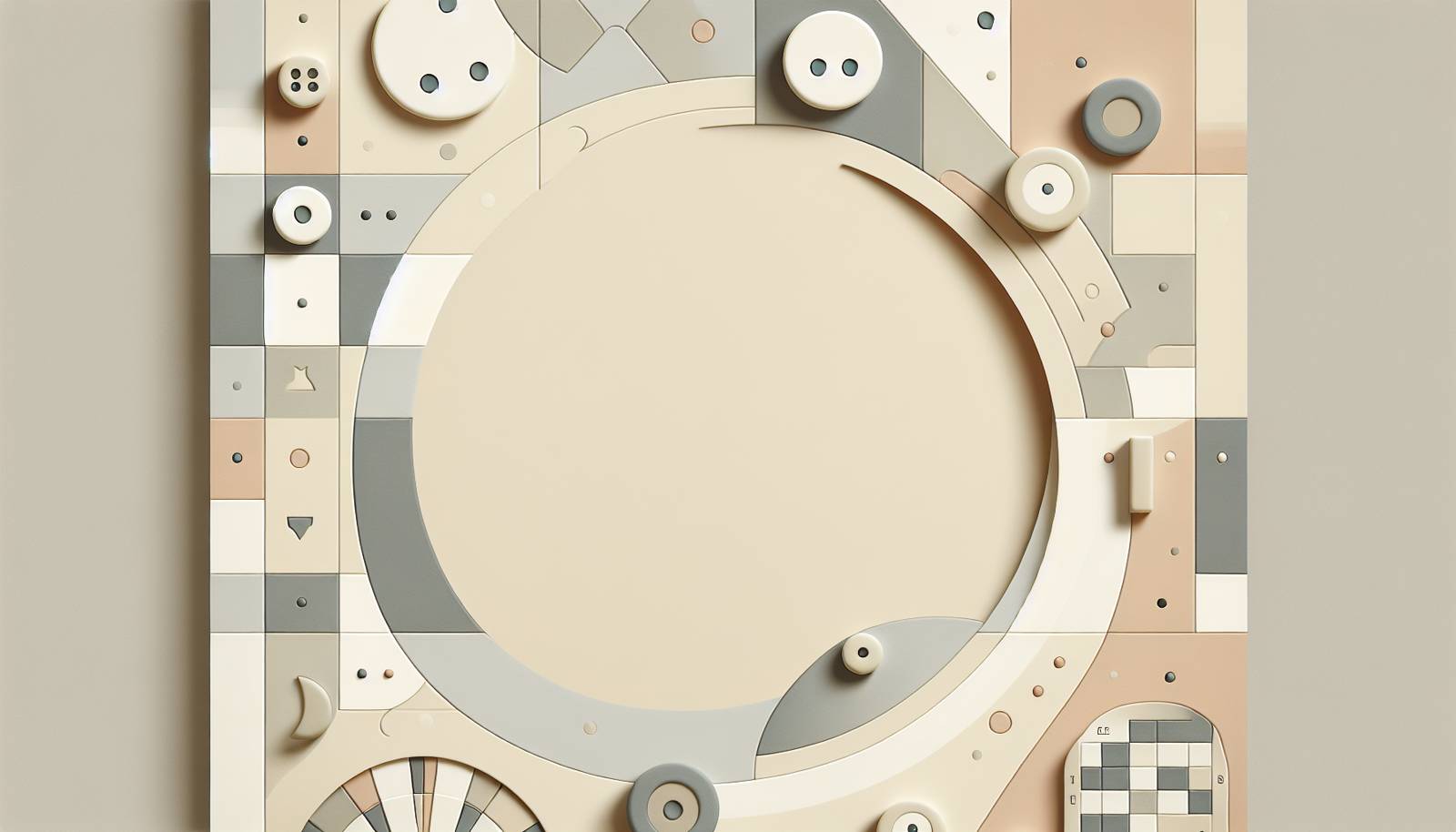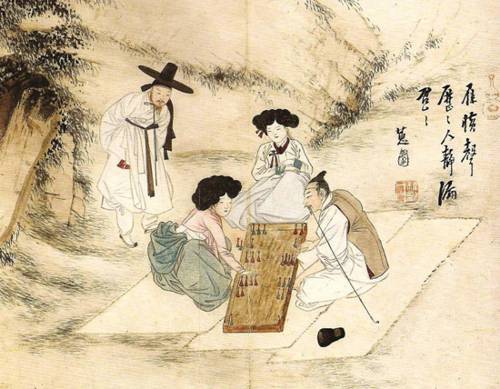
FAQ About Influence of Traditional Board Games on Modern Gaming Culture

What impact did traditional board games have on game design mechanics in modern gaming?
Traditional board games have significantly influenced modern game design mechanics by introducing elements such as turn-based strategies, resource management, and cooperative gameplay. These mechanics have been adapted and expanded upon in video games, providing a foundation for complex game systems. For example, the resource allocation aspect of games like 'Settlers of Catan' can be seen in popular strategic video games such as 'Civilization' or 'Starcraft,' where resource management is key to success.

How have traditional board games influenced storytelling in modern games?
Traditional board games often incorporate storytelling elements, unfolding narratives as players progress. This influence is evident in modern games which develop intricate storylines and character arcs. For instance, role-playing games (RPGs) such as 'Dungeons & Dragons' have paved the way for contemporary video games like 'The Witcher' series and 'Final Fantasy,' where storytelling is a central component of the gaming experience.

In what ways have traditional board games affected social interaction in the gaming community?
Traditional board games have always been a social activity, bringing players together for face-to-face interaction. This aspect has translated into modern gaming by emphasizing multiplayer modes and online communities. Video games like 'Among Us' and 'Mario Party' promote social interaction, teamwork, and communication, mirroring the communal experience of playing board games.

Can the influence of board games be seen in game genres outside of strategy or RPGs?
Yes, the influence of traditional board games extends beyond strategy and RPGs into various genres. For example, puzzle games like 'Tetris' or 'Candy Crush' echo the structured problem-solving found in games like 'Chess' or 'Go.' Similarly, card video games such as 'Hearthstone' draw heavily from traditional card games like 'Magic: The Gathering,' demonstrating the widespread impact of board game mechanics.

What traditional board game is considered most influential to modern gaming?
Many traditional board games have left a significant mark on modern gaming, but 'Dungeons & Dragons' stands out due to its pioneering of role-playing elements that have become staples in video games. The game's emphasis on narrative and character development has inspired countless modern RPGs, shaping the gaming industry dramatically.

Did video games enhance or diminish the popularity of traditional board games?
While video games have offered a new medium for game enthusiasts, they have not necessarily diminished the popularity of board games. In fact, there has been a resurgence in the popularity of traditional board games, often fueled by the digital platforms that allow for online play. Popular board games like 'Carcassonne' and 'Ticket to Ride' are available in digital formats, broadening their reach and engaging new audiences.

Are there any modern games that directly mimic traditional board games?
Yes, many modern games directly mimic traditional board games both in style and mechanics. Games like 'Tabletop Simulator' and apps for games like 'Catan Universe' simulate the board game experience on digital platforms, preserving the traditional board game atmosphere while enhancing accessibility for remote players.

How does the concept of turn-taking in traditional board games appear in video games?
Turn-taking is a core mechanic in many traditional board games and has been integrated into numerous video games, especially within strategy and tactical genres. Games such as 'XCOM' and 'Civilization' employ turn-based systems that allow players to strategize and plan their moves, fostering a similar sense of anticipation and suspense found in board games.

What are some examples of cooperative elements from board games found in video games?
Cooperative elements from board games, where players work together to achieve a common goal, can be seen in numerous video games. Games like 'Pandemic' allowed players to collaborate to stop a global outbreak, and similar cooperation is evident in video games like 'Left 4 Dead' and 'Overcooked,' where teamwork and coordination are crucial to success.

How has the digitalization of board games affected their gameplay experience?
The digitalization of board games has transformed their gameplay experience by making them more accessible to a wider audience through online platforms. Digital versions can often automate complex rules, provide enhanced graphics, and offer single-player mode against AI. However, some argue that it might lose the tactile and social elements inherent in physical board games.

Are there board game elements that are challenging to replicate in video games?
Yes, certain aspects of board games are challenging to replicate, such as the tactile experience of physically handling pieces and the face-to-face social interaction. Video games can strive to emulate these elements through virtual reality and online communities, but the tangible and immediacy of physical presence remain unique to traditional board games.

Why do some gamers prefer traditional board games over video games?
Some gamers prefer traditional board games over video games for several reasons, such as the tactile interaction with the game pieces, the face-to-face social engagement with other players, and the opportunity to unplug from screens. Additionally, board games often provide a different pace of gameplay and the chance to gather in a physical space with friends and family.

How have tabletop role-playing games influenced video game character development?
Tabletop RPGs like 'Dungeons & Dragons' have had a strong influence on character development in video games. They introduced detailed character creation, allowing players to shape unique avatars with distinct traits and backstories. This has been emulated in many video games, where character customization greatly enhances the player's personal connection to the game.

What are some examples of board game elements that enhance modern gaming aesthetics?
Elements such as detailed artwork, themed components, and imaginative storytelling from traditional board games have been incorporated into modern games, enhancing their aesthetics. Games like 'Gloomhaven' or 'Magic: The Gathering' provide immersive visual and thematic experiences that heighten player engagement, showing that aesthetic inspiration transcends physical to digital spaces.

Can the strategic planning required in board games be seen in today’s video games?
Strategic planning is an integral part of board games and is prevalent in today's video games, particularly within genres such as real-time strategy (RTS) and turn-based strategy (TBS). Games such as 'StarCraft' and 'Final Fantasy Tactics' demand players to plan ahead and adjust strategies on the fly, reflecting the strategic depth found in traditional board games.

What role does competition in traditional board games play in modern gaming cultures?
Competition in traditional board games has contributed to the competitive nature of modern gaming culture, evident in esports and competitive multiplayer games. Board games encourage competitive play, leading to skill development and strategic thinking, which carries over to competitive video games where players often engage in tournaments and rankings.

How do modern role-playing video games compare to their board game counterparts?
Modern role-playing video games have built upon the frameworks established by board games like 'Dungeons & Dragons.' While video games offer richer graphics and immersive environments, table-top RPGs provide a vast degree of player-driven storytelling and interaction, relying heavily on imagination. Both forms offer deep role-playing experiences, but their mediums give unique benefits and challenges.

Are video games an evolution of traditional board games?
In many ways, video games can be seen as an evolution of traditional board games, expanding on their mechanics, narratives, and social aspects. Video games utilize technology to create dynamic environments and complex systems that traditional board games may not be able to offer in the same capacity. However, both forms continue to coexist and influence each other.

What are some board games that have been successfully converted to video games?
Several board games have been successfully adapted into video games, such as 'Settlers of Catan,' 'Carcassonne,' and 'Ticket to Ride.' These digital versions maintain the core mechanics and strategies of their physical counterparts while introducing features like online multiplayer and automated rule management, thus appealing to both traditional fans and new players.

How do board games inspire educational elements in video games?
Board games often incorporate educational elements such as critical thinking, problem-solving, and cooperation, which are mirrored in educational video games. Educational video games use these elements to teach subjects like mathematics, language, and history in a fun and engaging way. Games like 'Civilization' indirectly teach players about historical events and strategic thinking, showcasing the educational potential that board games first introduced.
